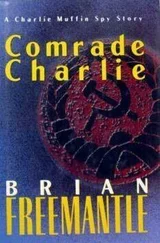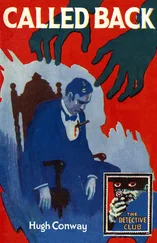Albert Edwards - Comrade Yetta
Здесь есть возможность читать онлайн «Albert Edwards - Comrade Yetta» — ознакомительный отрывок электронной книги совершенно бесплатно, а после прочтения отрывка купить полную версию. В некоторых случаях можно слушать аудио, скачать через торрент в формате fb2 и присутствует краткое содержание. Жанр: foreign_antique, foreign_prose, foreign_sf, на английском языке. Описание произведения, (предисловие) а так же отзывы посетителей доступны на портале библиотеки ЛибКат.
- Название:Comrade Yetta
- Автор:
- Жанр:
- Год:неизвестен
- ISBN:нет данных
- Рейтинг книги:4 / 5. Голосов: 1
-
Избранное:Добавить в избранное
- Отзывы:
-
Ваша оценка:
- 80
- 1
- 2
- 3
- 4
- 5
Comrade Yetta: краткое содержание, описание и аннотация
Предлагаем к чтению аннотацию, описание, краткое содержание или предисловие (зависит от того, что написал сам автор книги «Comrade Yetta»). Если вы не нашли необходимую информацию о книге — напишите в комментариях, мы постараемся отыскать её.
Comrade Yetta — читать онлайн ознакомительный отрывок
Ниже представлен текст книги, разбитый по страницам. Система сохранения места последней прочитанной страницы, позволяет с удобством читать онлайн бесплатно книгу «Comrade Yetta», без необходимости каждый раз заново искать на чём Вы остановились. Поставьте закладку, и сможете в любой момент перейти на страницу, на которой закончили чтение.
Интервал:
Закладка:
He told her how much he had liked her speech, as he led her across the room and chatted busily about other insignificant things, just as if rescuing a young girl from the brink of perdition was one of the most natural things in the world. Yetta was not at all hysterical, but she had had enough strange emotions to upset any one that night. His quiet steady tone, as if everything of course was all right, was like a rock to lean upon.
He left her in an empty committee-room off the stage and hurried out to find Mabel, who, as a matter of fact, had not sent him to find Yetta. With no small exertions he pried her loose from the swarm of admiring young girls, and, leading her to the door of the committee-room, told her what had happened.
"Good old Walter," she laughed; "warning me not to butt in, and doing the rescue all by yourself."
"I didn't butt in," he said sheepishly, "until the chap began to use force."
"Are muscles the only kind of force you recognize?" she said. "I'll bet he wasn't using half as much force when you interfered as he had other times without touching her."
She went into the committee-room and closed the door. And in a very few minutes Yetta was lost in the wonder of a friend. Hundreds of girls had sobbed out their troubles on Miss Train's shoulder before, but, although she made jokes to her friends about how tears faded her shirtwaists, none of the girls had ever failed to find a ready sympathy. Although the process had lost the charm of novelty to Mabel it was for Yetta a new and entirely wonderful experience. Not since her father had comforted her for a stubbed toe or a cut finger had she cried on anybody's shoulder. And Miss Train, as well as Longman, had the tact, as soon as possible, to lead her thoughts away from the evening's tragedy to the new ideals which the meeting had called to life. As soon as her tears were dried, Mabel took her out in the main hall and introduced her to her friends. Longman came up and claimed a dance, and after it was over he sat beside her for a time and talked to her about labor unions and the struggle for Liberty. And then he called over Isadore Braun, the socialist lawyer, and had him dance with her. These two were her only partners at her first ball. Every few minutes Mabel managed to escape from her manifold duties and sit beside her.
About midnight they took her home. Longman shook hands with her, and Mabel kissed her good night. Yetta went up the dark stairway very tired and shaken.
CHAPTER VIII
NEW FRIENDS
"Interesting girl," Longman said as he and Miss Train turned away from Yetta's door.
"Yes. I'll have to keep an eye on her. She may be a valuable recruit."
Longman laughed.
"What's so funny?" she asked sharply.
"Funny isn't just the word, but don't you ever see anything in people except enemies and allies?"
"I don't think much else matters – enemies and allies. There can't be neutrals in a fight for Justice."
"True enough, but I see a lot of interesting things in this little girl of the slums, which haven't anything to do with the fact that she is chuck full of fighting spirit and is sure to be on the right side."
"For instance?"
"Well. To begin with, a sweet and pure character, which in some amazing way has formed itself in this rotten environment – a wonderfully delicate sort of a flower blossoming in the muck heap. The kind of a sensitive plant that the slightest rude touch would blight. It's a marvel how it has escaped being trod upon – there are so many careless feet! I'm not proud of myself as I am, but I hate to think of what I'd be like if I'd been born in her cradle. It is always a marvel to me when some child of the slum wants to be good. From where in all this sordidness did she get the inspiration? And then it is always interesting to me – sad and interesting – to see how utterly stupid this desire for goodness is – how it is just as likely to lead to utter damnation as anywhere else. This Yetta Rayefsky has a beautiful and quite absurd trust in people. On a very short acquaintance she trusts you completely. I think she trusts me too – just exactly as she trusted that Cadet. And the faith she put in him was just as beautiful as what she has given you."
"Walter, a person who looked at you would never dream that you're such a – "
"Sentimentalist? I suppose you're going to call me that again."
Longman said it bitterly. And she, knowing how the taunt would sting him, with equal bitterness did not reply. They trudged on side by side in silence, across town to Broadway and up that deserted thoroughfare towards Washington Square. They were neither of them happy.
In the bottom of her heart Mabel Train knew that something had been neglected by those fairies who had equipped her for life. They had showered very many talents upon her. But they had forgotten that little knot of nerve cells which had to do with the deeper affections. There were heights and depths of life which she knew she would never visit. It made her feel unpleasantly different. And Longman, whom otherwise she liked very much, was always reminding her of this deficiency. It seemed to her that he was mocking her cold intellectualism. And being supersensitive on this point, she had hurled "sentimentalist" in his face.
Of all the odd types in New York City, Walter Longman was one of the most bizarre. His parents had died while he was in Harvard. They had left him an income of about five thousand a year. He did not make a brilliant record in the University. There were nearly always one or two conditions hanging over his head, but a marked talent for languages and a vital interest in philosophy carried him through. He was not popular with the students because in spite of his immense body he could not muster sufficient interest in football to join the "squad." He preferred to sit in his window-seat and read.
In the course of his junior year he chanced in his haphazard reading upon a German scientific review which contained an account of some excavations in the territory of Ancient Assyria. It told of the discovery of a large quantity of "brick" books, in a language as yet undeciphered. The matter interested him, and he set out to find what the library contained on the subject. He was surprised at the amount of material there was. The story of how Rawlinson and others had deciphered unknown languages fascinated him. He stayed on in Cambridge two months after graduation to finish up this subject. He found more information about the "brick" books which had first caught his attention. Several hundred of them had been brought to a museum in Berlin. Having nothing pressing to do in America, he went over to have a look at them. All the spoil from this expedition had been housed in one room. After studying the bricks for a couple of days, he thought he had found a clew. He could get more ready access to them if he was a student, so he went to the University and enrolled. He had no idea of staying long, nor of attending courses in the University, but his only plan for life in America was to write a book on philosophy, and that could wait.
The first "clew" proved to be an illusion. But those rows and rows of ancient bricks, with their cryptic writing which hid the story of a lost civilization, had piqued his curiosity. Again he decided that his work on philosophy could wait.
It was two years before he satisfactorily translated the first brick. Once having found the key, his progress was rapid. If he had been in touch with the Assyriologists of the University, he would probably have confided in them at once. But he knew none of them personally, and he went on with his work single-handed. It took him six months to translate the entire collection. They contained the official records of a certain King of kings, who had ruled over a long-forgotten people called the Haktites. It took him six months more to arrange a grammar and dictionary of the Haktite tongue. Then he remembered the University and took his two manuscripts to the Professor of Assyriology. He was decidedly provoked by the first scepticism which greeted his announcement, even more bored by the hullabaloo which the savants made over him, when investigation proved the truth of his claim. He stayed a year longer in Europe, to see an edition of his work through the press at Berlin and to translate the scattered Haktite bricks in other museums. This took him as far as Teheran and afield to the site of the excavations, where there were numerous inscriptions on the stonework which was too unwieldy to be taken to European museums. Then he came to New York to take up the position of Instructor in Assyriology in Columbia. He had stipulated that he should be granted a great deal of leisure. It was not a hard matter for the University to arrange, as there was no great clamor among the students to learn Haktite. But Longman had insisted on the leisure, so that he would have opportunity to write his book on philosophy, which seemed to him very serious and infinitely more important than the dead lore of his department. He was vexed with himself for having wasted so much time and acquired such fame in so useless a branch of human knowledge.
Читать дальшеИнтервал:
Закладка:
Похожие книги на «Comrade Yetta»
Представляем Вашему вниманию похожие книги на «Comrade Yetta» списком для выбора. Мы отобрали схожую по названию и смыслу литературу в надежде предоставить читателям больше вариантов отыскать новые, интересные, ещё непрочитанные произведения.
Обсуждение, отзывы о книге «Comrade Yetta» и просто собственные мнения читателей. Оставьте ваши комментарии, напишите, что Вы думаете о произведении, его смысле или главных героях. Укажите что конкретно понравилось, а что нет, и почему Вы так считаете.












